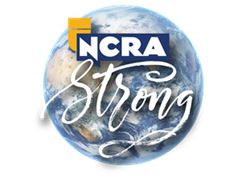By Risa Entrekin
Many reporters accept an officialship after years of freelancing and feel they can relax with only one person to keep happy: the judge. After the excitement wanes, however, complacency often manifests itself in job dissatisfaction and frustration. The official who maintains a freelance mind-set in an official world can avoid this and enjoy a successful and pleasant career. Here are a few thoughts on how to succeed at the business of officialships without really trying:
Technology: In this ever-changing world, the steno machine remains a steady, trustworthy foundation upon which we must build an environment to meet client demand. The “client” may be a judge, court administrative staff, a probation or parole officer, attorneys, pro se litigants and their families, or any combination of the above.
As new attorneys emerge on the scene who have been immersed in high-tech gadgetry since before they started kindergarten, the reporter’s ability to respond to their needs becomes increasingly important. Whether it is emailing transcripts in various formats or live streaming a realtime feed to off-site participants, an awareness of technological advancements and the willingness to acquire the skill and equipment necessary to respond to those advancements is crucial. One way to become familiar with the latest advancements is through technology itself: participating in Facebook groups, watching YouTube “how-to” videos, and attending NCRA and other conferences either in person or remotely.
Maintaining and improving one’s skill is always a worthwhile goal that will benefit the client as well as the reporter. A trial involving technical subject matter will always be extremely challenging, but it can be more successful and less stressful when a reporter is at the top of his or her game. Some courts even offer pay incentives for additional certifications.
Financial considerations: An officialship may create new and challenging financial considerations that are best discussed with an accountant or tax advisor. Although taxes will be withheld from salaried income, it may be necessary for the reporter to file estimated tax payments to avoid underpayment penalties. Keeping transcript income and estimated taxes in a separate account may be helpful.
Keeping good financial records is burdensome and time-consuming, but it is a necessary evil. Some officialships require additional record keeping that can seem like “busy” work to the busy reporter. However, this record keeping is simply a job that must be done. The best attitude to cultivate is one of acceptance instead of procrastination.
Organization: When time is short and days in court are long, a consistent method of organizing work and maintaining records is a necessity. Constantly prioritizing transcript requests is a must. The “Sticky Notes” tool available on the Windows desktop or the use of Microsoft OneNote can assist the reporter to be continually aware of what task needs the most urgent attention.
Proofreading on a mobile device can allow the reporter to make more efficient use of unavoidable time delays. Files can be sent and received from a proofreader using the same technology. Develop a quick and effective way of preparing a job or case dictionary for a realtime feed. This often is the difference between a mediocre and excellent realtime transmission. The official may find it helpful to organize the most urgent tasks at the close of a workday.
Teamwork: Unlike the freelance world where the reporter is often working autonomously, teamwork is extremely important for the official. Officials live in an uncertain world of budget cuts and work study evaluations, and they share their world with courthouse personnel who often do not understand or appreciate the reporter’s contribution. Officials often face threats of being replaced by other technology. The reporter’s best reaction in the face of uncertainty is to become invaluable at the courthouse. As with any public-sector job, the reporter will work with a myriad of people from a variety of backgrounds who possess many different attitudes and work expectations. A reporter should always strive to maintain a professional attitude and keep the interests of justice as his or her top priority.
Teamwork also includes working well with a future team, the reporters who will assume the official reporter positions of the future. Create a method of communicating with the reporters of tomorrow about how records, audio files, rough drafts, and final transcripts are stored. This lasting legacy furthers the cause of justice. An “In Case of Emergency” file which can be easily accessed by others will ease the transition and save time. The file should include passwords, file locations, account numbers, locations of keys, and any other information the court reporter considers important.
Professionalism: It is human nature to have short memories of positive experiences and lingering memories of negative situations. This is one of many reasons for the official reporter to endeavor to develop and maintain a high degree of professionalism. The NCRA Code of Ethics is an additional incentive. Frankly, another reason to always maintain professional integrity is because the legal community is often relatively small and closely knit. A reporter may not know that the doddering old attorney fumbling with the newfangled evidence presentation method used to be the judge’s law partner or that the intake clerk struggling to get a degree may end up clerking for the judge before he accepts a position with a stellar law firm.
Reporters should always avoid even the appearance of impropriety. The official who becomes complacent about their duties can sometimes relax this standard and become friendlier with attorneys who frequent the courtroom. Giving advice and commenting on a case is always inappropriate, regardless of how well a reporter knows an attorney. The official should treat everyone equally, both in the courtroom and after the fact.
Always strive to honor commitments made for transcript production. Maintain communication with the requesting party throughout the production process if necessary. A late transcript now and then is inevitable and unavoidable, but a late transcript preceded by no communication from the court reporter is unjustifiable.
The official sometimes has more flexibility to volunteer with state and national associations, and yet freelancers often carry the lion’s share of this burden. Officials should encourage students by mentoring them if at all possible. This encourages the student and allows them to be more comfortable in an intimidating setting. This connection with students can benefit both the student and the working reporter. Providing pro bono services or transcribing interviews through NCRA’s Oral Histories Program are other ways officials can contribute to their profession.
An unknown author once said, “Watch your thoughts, for they become words. Watch your words, for they become actions. Watch your actions, for they become habits. Watch your habits, for they become character. Watch your character, for it becomes your destiny.” Officials should faithfully preserve the record with skill and professionalism, always being cognizant of their contribution to our collective destiny.
Risa Entrekin, RDR, CRR, CMRS, CPE, is an official based in Montgomery, Ala. She also holds NCRA’s Realtime Systems Administrator certificate. She can be reached at risaentrekin@gmail.com.













